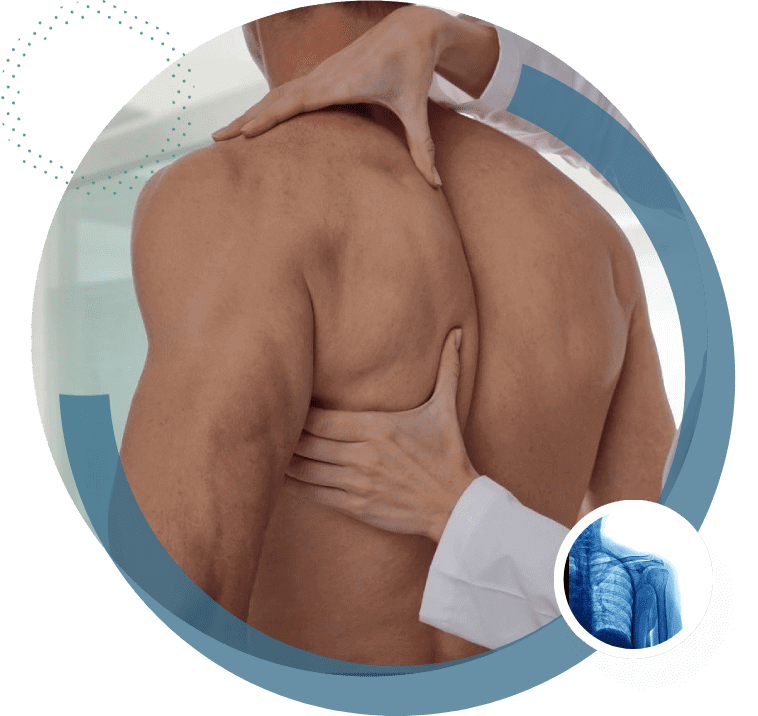
Shoulder Dislocation Treatment in San Diego, CA
Shoulder dislocation is a relatively common traumatic joint condition that causes pain and instability for patients. While conservative treatments can work for some patients, arthroscopic surgery is indicated when dislocations become chronic and recurrent. For more information, contact Dr. DuBois' La Mesa, CA, offices to schedule an appointment.
With its ball-and-socket anatomy, the shoulder is the body's most mobile joint; however, this mobility can lead to instability, making it the most commonly dislocated joint. This condition, in which the humeral head is pulled out of its socket, causes significant pain and makes any movement extremely uncomfortable. The shoulder labrum, as well as the rotator cuff may become torn and require surgery.
Defining Shoulder Dislocation
Dislocation injuries fall into two categories, depending on the severity of the injury: partial dislocation (subluxation), in which the humeral head is only partially out of the socket, or complete dislocation, in which the humeral head is pulled all the way out of the socket. In either case, the injury can result in ligament and tendon tears in the shoulder, leading to recurrent instability and pain.
To further describe injuries, dislocation is categorized according to the direction in which dislocation occurred, including forward (anterior), backward (posterior), or downward (inferior). Anterior dislocation is most common and accounts for 95% of shoulder dislocation cases.

Shoulder Dislocation
When the humerus is pulled out of its socket, the shoulder's components may stretch beyond their means and tear. This includes muscle, tissue, and joint cartilage, which all work together to stabilize the joint and protect it against friction and natural degeneration. When a shoulder dislocation ruptures any of these components, patients may experience pain and severe dysfunction when attempting to move the arm in any direction.
Diagnosing a Dislocated Shoulder
When assessing a patient's injury, the doctor will examine the shoulder and typically order an X-ray and posssibly an MRI. It is important to let the doctor know how the dislocation occurred and whether the shoulder has been dislocated previously.

Treatment for Dislocated Shoulders
As with any musculoskeletal injury, receiving a proper diagnosis and treatment recommendation from a board-certified orthopedic surgeon, such as Dr. Benjamin DuBois, is best.
To correct a dislocated shoulder, a procedure known as a closed reduction may be performed. The attending surgeon will place the humeral head back into the glenoid fossa, stopping severe pain immediately once the shoulder joint is back in place. This will typically be done at a hospital emergency department and may require sedation.
Patients are often encouraged to immobilize the shoulder joint using a sling, wrap, or brace after reduction. Immobilization reduces the pain resulting from movement, facilitating the natural healing of the injured components.
After shoulder pain and swelling are reduced, rehabilitation exercises can help restore joint function and strengthen muscles. These exercises may also help prevent future shoulder dislocations.
Many patients' shoulder dislocations will respond to these treatments; however, surgery may be indicated to repair the torn structures and prevent future instability. This minimally-invasive arthroscopic surgery is performed to repair the torn labrum back to the shoulder socket.
San Diego, CA Shoulder Pain Treatment
Dr. Benjamin DuBois is a board-certified, fellowship-trained orthopedic surgeon specializing in shoulder and upper extremity treatment. Dr. DuBois has expert training in shoulder surgery and has extensive experience treating dislocated shoulders, performing arthroscopic surgery for sports injuries, and shoulder replacement surgery for arthritis relief. To learn more about dislocated shoulder treatment, schedule a time to speak with Dr. DuBois at his office in La Mesa, CA.
